After reading the nonfiction book as part of their English language arts (ELA) curriculum, students were inspired to take action and do their part by partnering with Water for South Sudan, a nonprofit organization that provides sustainable and clean water sources and hygiene education to remote villages in South Sudan.
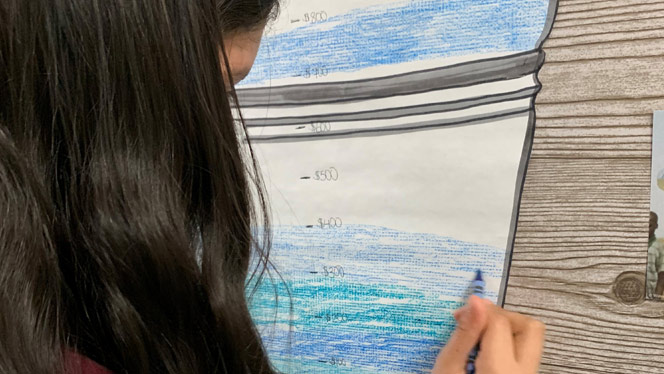
“A Long Walk to Water,” published in 2010, alternates between two key storylines: one that is based on a true story of Salva Dut, an eleven-year-old Sudanese boy who fled his war-torn country to seek refuge in Ethiopia, ultimately ending up being rehomed to an American family. The other focuses on a fictional character, Nya, as she recounts her experience obtaining water for her family by traveling miles to the nearest large pond. Nya’s character is surprised to find a group of mysterious men in her village building a well to provide access to water.
The goal of exploring this book aims to guide students to understand that obstacles can be overcome through hope and perseverance and that by giving back, a person can use their own experiences to better the lives of others. Alyssa Baron, sixth-grade language arts teacher at Fortis, explained that as her class completed a WebQuest on the main character, they discovered fundraising opportunities to help build wells and bring hygiene education workshops to villages, and decided, as a class, to participate.
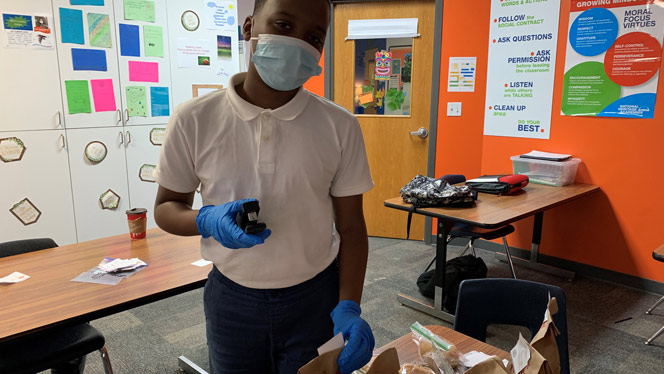
“Students shared the fundraising page with friends and family,” Baron explained. “For every $10 donated in their name, students received a voucher for a pie. Students will tune into a Google Meet where they can assign a teacher to pie themselves in the face!”
Hybrid students also became involved as the school held a Donut Day, in collaboration with the local Tim Hortons, where students donated $1 per donut with all proceeds going directly to the fundraiser.
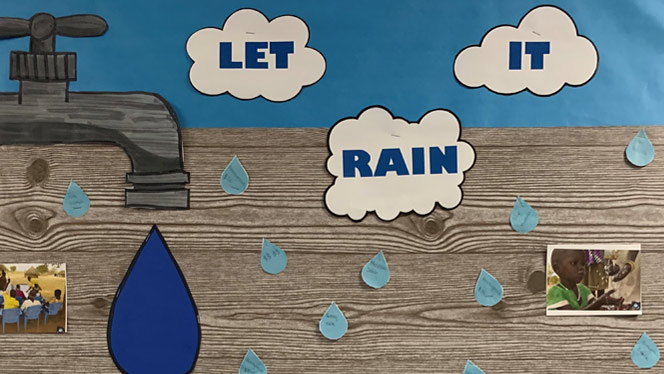
“It was overwhelming to see our school and our community connect with not only our fundraiser but the story of Salva and his people,” said Baron. “Staff members donated, borrowed copies of the novel, shared the story with friends and family, and even helped us put together our fundraising board! Very quickly, this project became much bigger than just the sixth grade and our entire school joined the team. This fundraiser and its mission were the talk of the town for the entire month!”
This was a moving experience for the students, who read the novel throughout October and November. When asked about the importance of donating to help bring clean water to South Sudan, one student, Michael S., said: "We can donate to help raise money because it's not fair that we can just buy water, but others have to build for it."
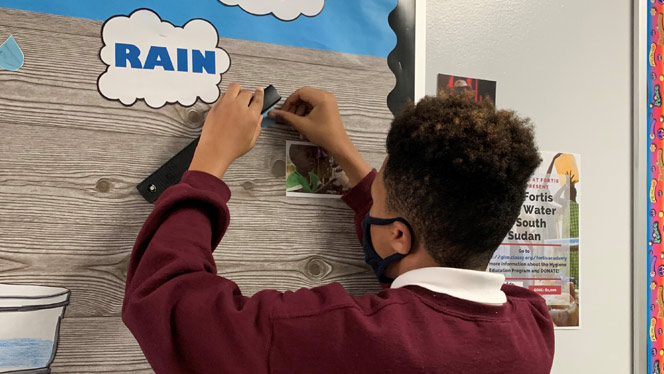
ELA Team Lead at NHA, Sarah Montpas, explained that the sixth-grade curriculum revolves around the question “how do my experiences compare to the experiences of others?” which is why students must gain a firm grasp on the topic.
“We chose texts that provide perspectives outside of our students’ immediate experiences, but that shows how, as humans, we all experience similar things,” she said. “This text highlights our need for safety and for clean water and how hope often plays a large part in persevering through obstacles in life.”
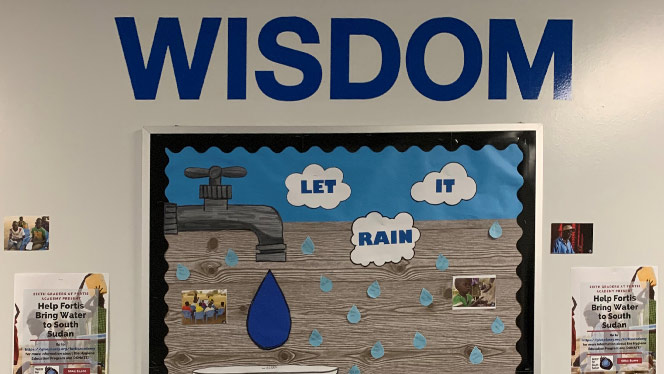
This idea hit home for another student, Trevor S., who shared his sentiments, stating: "To me, ‘A Long Walk to Water’ and Salva's story meant that it shows the struggles of how these people don't have water or don't have clean water. It really means a lot to me because I don't go through this, but I really want to help people that don't have clean water or no water at all."
Staff at the school also were moved by the students’ engagement with the book, resulting in essentially the entire staff reading the book as well.
